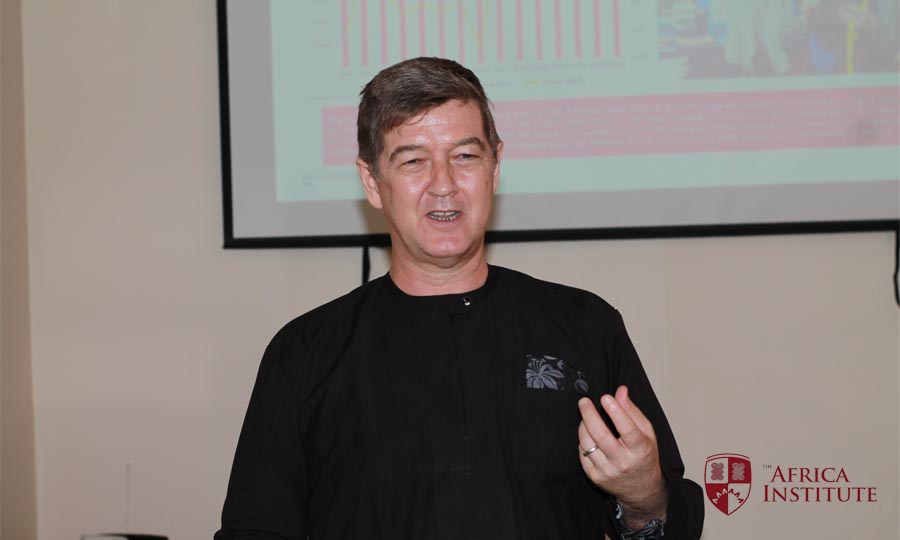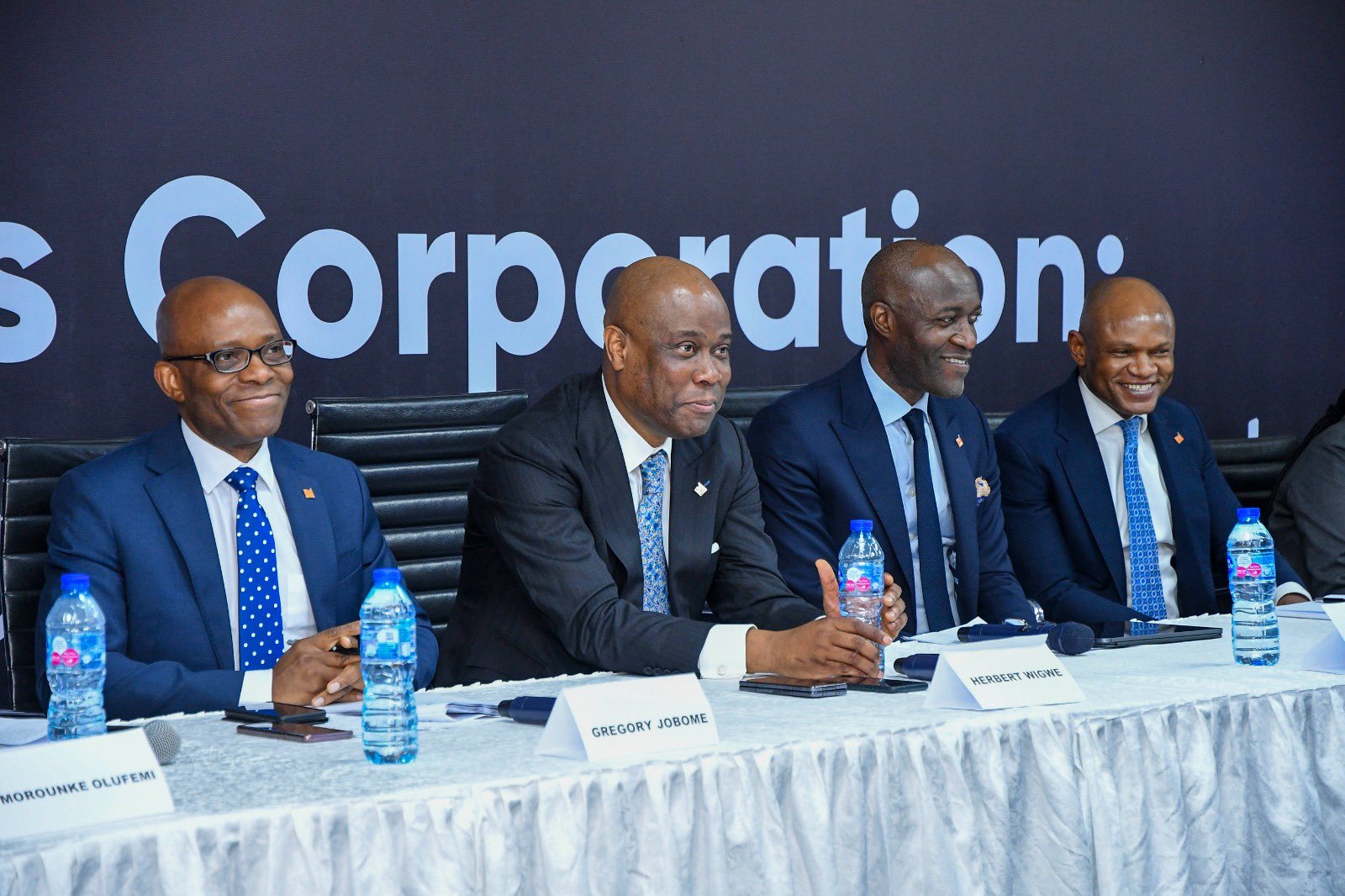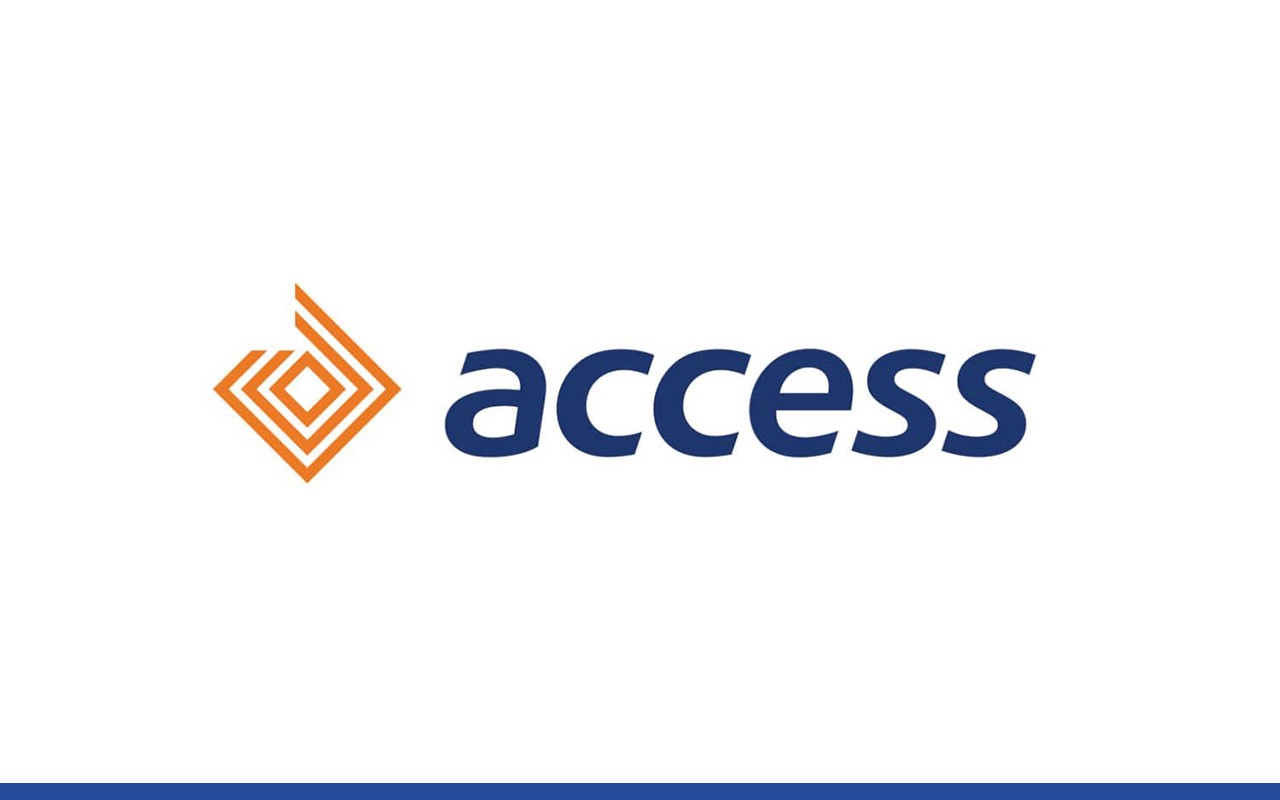Leading global tax analyst and Chief Economist at PwC Nigeria, Dr Andrew Nevin spoke via skye from Canada with Nigeria’s cable TV, ARISE on Tuesday on a crucial tax corruption and illicit financial flows.
Aside the perfect background provided by the TV programme anchored by Veteran Dr Reuben Abati, the tax mogul presented chilling facts on Nigerian systems that need instant reviews to tame illicit haemorrhage.
Background provided by Dr Reuben Abati on the issue of discussion:
On dealing with illicit financial flows, recent studies by a number of global anti-corruption watchdogs have tried to make a connection between this failure and the exponential increase or the soaring of the culture of official corruption in developing countries such as Nigeria and many other African countries.
Recently a Nigerian that goes by the alias was extradited from Dubai United Arab Emirates to the United States to face charges of money laundering and internet fraud. And here closer to home a presidential panel last subjected Ibrahim Magu, the suspended acting Chairman of The Economic and Financial Crimes Commission (EFCC) to intense interrogation for allegedly acquiring properties in Dubai using funds from looters.
Joining us from Canada, to throw more light on this matter is Dr Andrew Nevin, partner and Chief Economist Price Water House Cooper Nigeria.
Good Morning Dr Nevin, welcome to the programme. Quickly, the challenge of illicit financial flow, we understand that the country like Nigeria for example loses up to 15 billion Dollars per annum; I don’t know if that is exaggerated but what is the issue, is it national strategy at the country level or failure to cooperate at the international stage. What are the risks, what is the vulnerability, what needs to be done to check major challenge particularly to developing economies?
Dr Nevin reacts thus;
A very good question, so let’s start by distinguishing the two kinds of illicit financial flows. So for example if a company overstates the invoice so if the firm overstates it, then you can move money abroad, more money that you should without tax being paid because it is supposed to be tax deductible from the country that is paying the tax. And that is a terrible form of illicit financial flows but very difficult to track. But in this discussion, let’s focus on the gains from corruption and what happens there. So the problem with the person whose has taken public funds or corrupt money is once they have done it, what will they do with the money and it is becoming increasingly difficult to perfect laundry because they want to get the money to some place that they can use it, often outside the country. So I think the challenge as you said is within the nation and they also need international cooperation around it. And I think Nigeria needs to focus on both of these priorities in order to make progress on this, but in terms of what happens in Nigeria, I have to say that one of the innovation in my time that is really world class. Its still like they are leading in the world discuss with the BVN, Bank Verification Number which is just fantastic, of course if you read headlines about these things, you will see people that probably end up with multiple bank account and they can link those flows together, through that fantastic tool BVN. And for the corruption issue in Nigeria, the question is in the illicit financial flows, how you get more international cooperation, not only to get money back but to in fact prevent the flow in the first place.
Dr Abati Chips in Again;
Thank you Dr Nevin, but I wanted to take you to that United Nations report that was really exhausted, it looked at illicit financial flows from 1980 to 2009 and the trillions that Africa has lost, it is a really staggering figure. But there is a part that really interest me here, saying that corrupt practices such as bribery and embezzlements constitutes only 3% of illicit outflows, whereas drug trafficking and smuggling make up 30 to 35%, but it is commercial transactions by multinational companies that make up 60 to 65%. How do we begin to address this because when we think of corruption and illicit financial flows, we do tend to think in terms of looting from government officials and stashing it abroad, but according to this report, that is not the case, that is 3%.
Dr Nevin caps his views thus;
Exactly that is why I began by distinguishing between corruption and illicit financial flows; the 60 to 65% is a bit of what I described. So you have a multinational and obviously, it is legitimate for a multinational to charge a local operator in Nigeria something for what to provide for imports perhaps for the brand name, trade mark, and support for marketing. And the question is if it does not overcharge because let’s say if the local company pays maybe a million dollars to the aren’t for some purpose, that million dollar gets deducted from the income tax payable by the local entity, so obviously, it is the global entity plays a central part in low tax restriction and then build the units in the country as much as possible and minimise tax.
So in this area, I think that Nigeria actually has quite comprehensive law and we have seen a lot of work from both sides on tax reprising between this two entities, but I think the only way forward is to make sure that there is always a check, and I mean the companies justify why it is charging a million dollars for this licensing fee, why they are charging this amount for an import that has to be done, why are they charging this amount as a management, these things need to be challenged by the local government officials, tax officials.
And of course what it means for the tax officials is that they need to have a very high level of knowledge, what is appropriate, how accounting works, how business operates, what is a reasonable level of clinging to something like that, which continues to be challenging rightly as the UN report said. What looks legitimate is actually the figure of the financial flow than the illegitimate, the other way that you can have illegal financial flow.
I think is another example is when you misstate the amount of what is in a shipment for example in Nigeria, some will import and declare an amount but actually what is in the container is a larger amount and then they pay their duty in a smaller amount and of course that is illegal financial flow and it does not end up well with the government. So the number of ways that large companies or multinationals affect these illicit financial flows, in order way of course is that you use your natural resource economy and your own royalties to the government for example you find waste under state like you are producing and you are paying royalties on a thousand metric tonnes and you are producing three thousand metric tonnes that is another form of getting this illegal financial flows at a corporate level.









